New apartment supply drops 6% in July
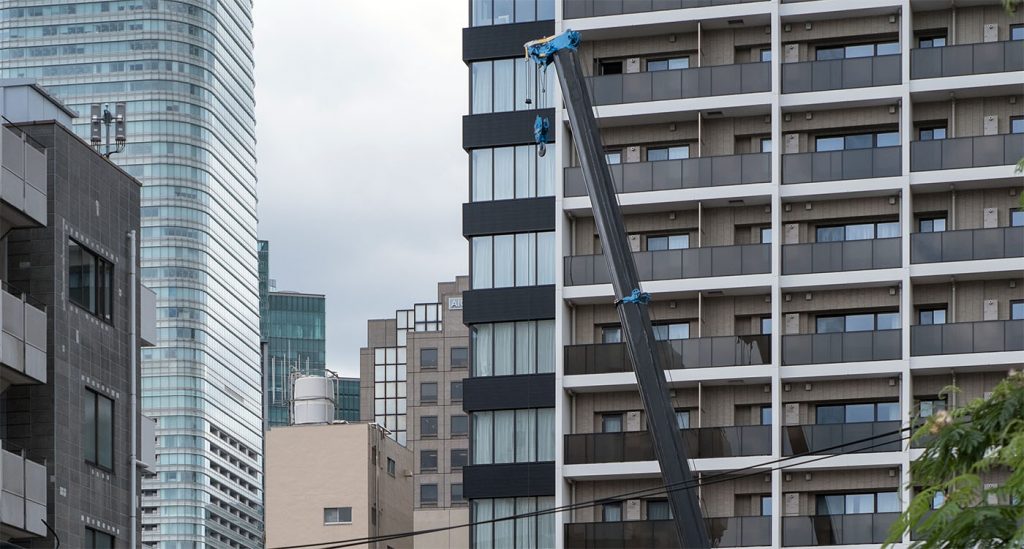
The supply of brand new apartments released for sale across Greater Tokyo in July dropped 6.2% from last year, resulting in the first year-on-year decline in eight months. This is due to developers having released most of their projects in the first half of the year to meet high demand from buyers.
New office building for Omotesando
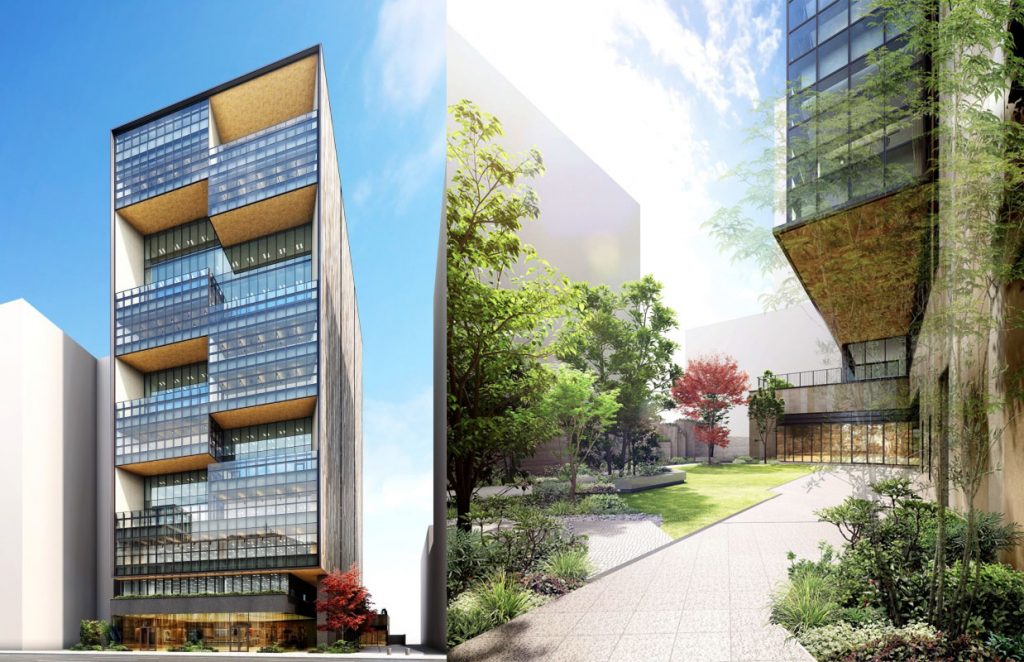
Construction has started on a 60-meter tall office building in Omotesando. The joint project by Mitsubishi Jisho and Goko is scheduled to be completed by February 2023.
Tokyo apartment prices per square meter between 1992 and 2020
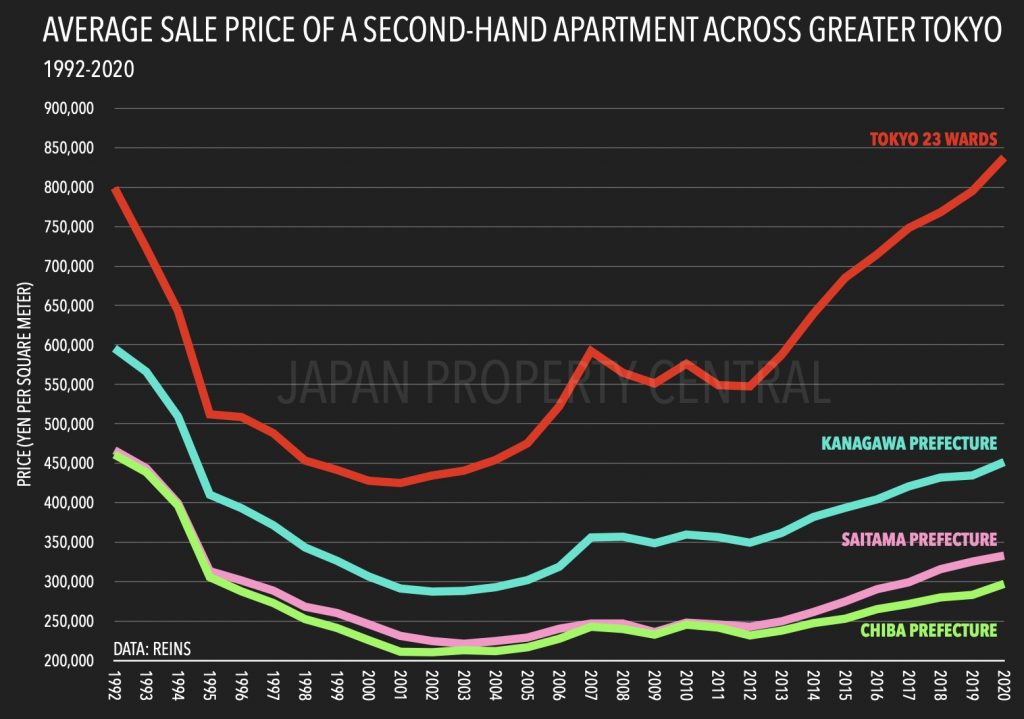
If anyone is interested in the change in apartment prices in Tokyo and its surrounding prefectures, the following data sourced from REINS may be of interest.
Looking to buy a large apartment in Tokyo? This is why you might be having difficulty
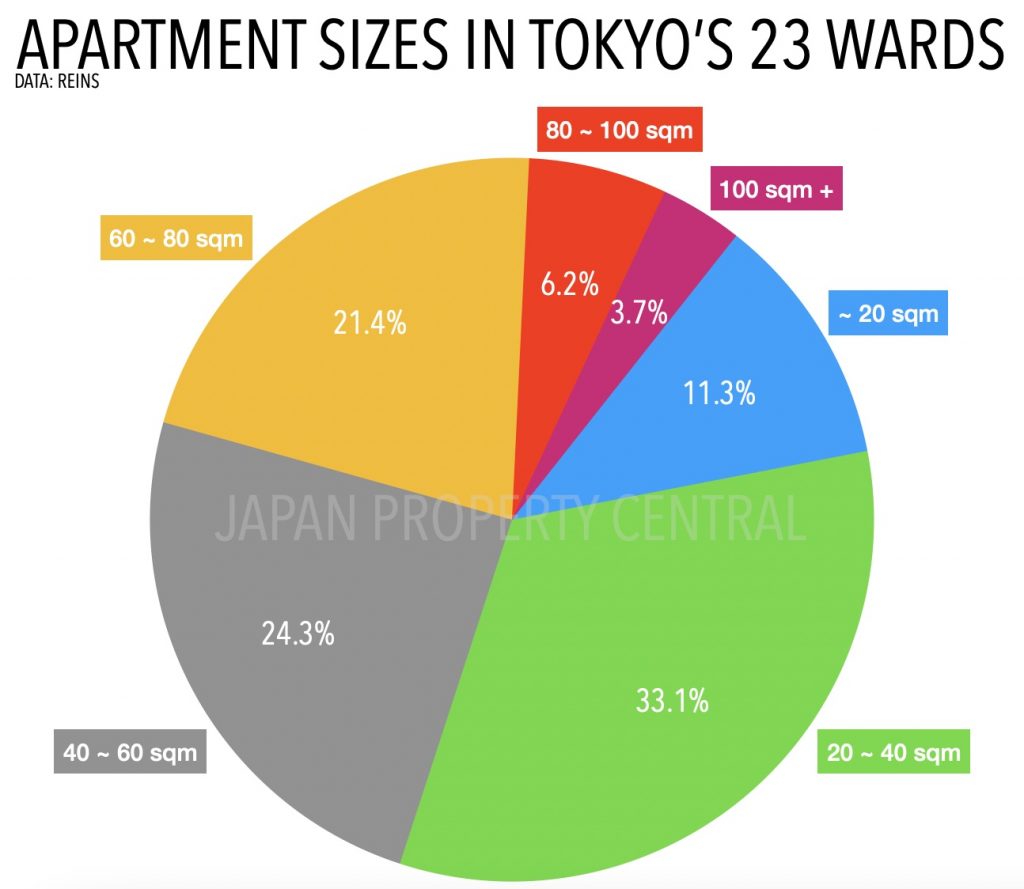
Houses and apartments in Japan are typically on the small side. The standard size of a three-bedroom apartment might be around 70 sqm, and a two-bedroom apartment in the 50 ~ 60 sqm range. Detached homes might be under 100 sqm, spread over three floors and including the car park. There are larger homes and apartments to be found, but buyers need to be aware that the availability of these larger properties is very limited.
Tokyo office vacancy rates reach 6.28%
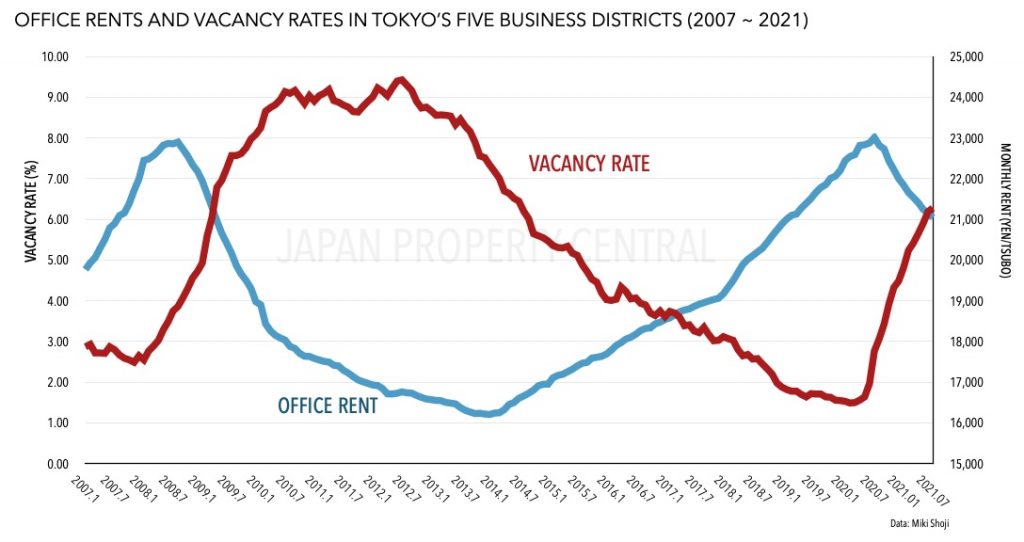
According to office brokerage Miki Shoji, the average office vacancy rate across Tokyo’s five business districts of Chiyoda, Chuo, Minato, Shinjuku, and Shibuya, was 6.28% in July 2021, up 0.09 points from the previous month and up 3.51 points from last year.
Tokyo apartment inventory continues to decline while prices rise
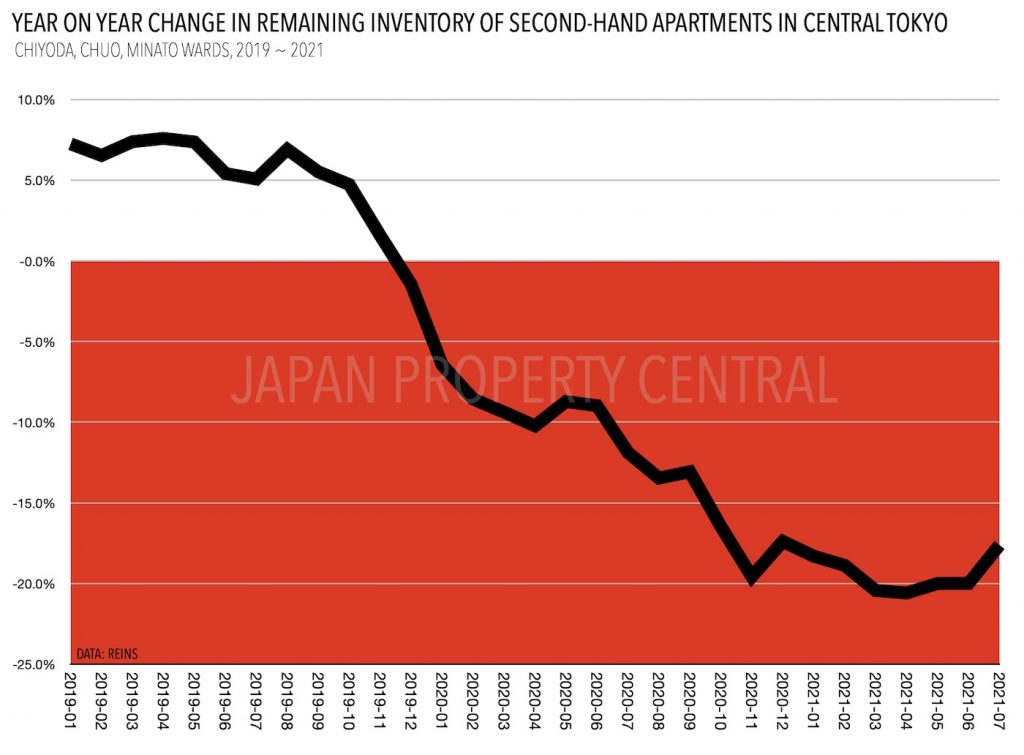
According to REINS, the total number of second-hand apartments sold across greater Tokyo in July saw a year-on-year drop for the first time in five months, while the average sale price per square meter increased for the 15th month in a row.
How age affects house prices
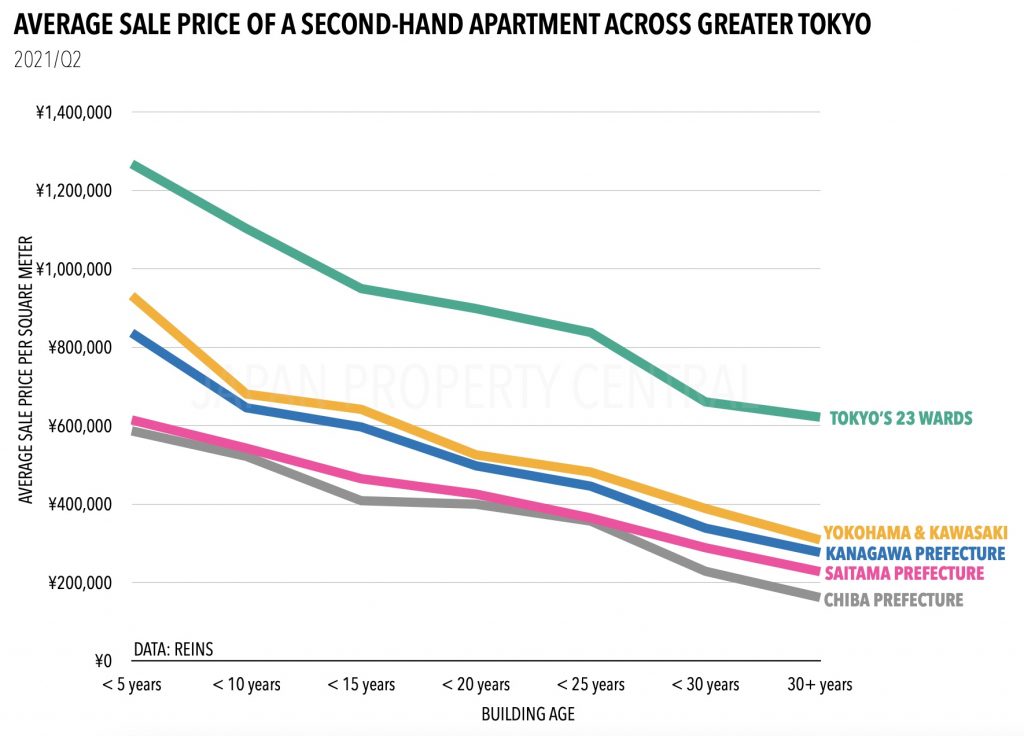
One of the factors that affect the pricing of a home or apartment in Japan (and other countries) is the age of a building, with newer construction typically priced at a premium. This is because older homes and apartments can become out-of-date and lack the modern amenities, interior finishes and latest trends found in newer construction. All other things being equal, an old and tattered apartment from the 1960s with no elevator, insulation, and low ceilings is not going to sell for as much as a brand-new one built to the latest specs. Changes to earthquake-resistant construction methods over the decades make the price divide even more apparent in Japan.
